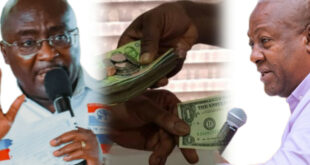The Chamber of Petroleum Consumers (COPEC) Ghana is urging the government to withdraw the Price Stabilization and Energy Recovery levy again.
It has threatened to picket and demonstrate at the premises of the Ministry of Finance to insist on the withdrawal if the government does not take action within a week.
Prices of fuel have gone up at the pumps across the country because the levy which is a key component of the fuel price build-up, has been restored by the National Petroleum Authority (NPA) after it was suspended for about three months.
The levy was suspended last year as a means of reducing the burden on consumers.
In a Citi News interview, the Executive Secretary of COPEC, Duncan Amoah said the re-introduction of the levy will intensify the already existing hardship citizens are facing.
“We intend to use the next seven days to engage with the Finance Ministry to see reason in taking out the Stabilization and Recovery Levy, as the president had originally directed. If that fails after 7 days, we intend to picket and demonstrate at the finance ministry and when necessary, spend days there until the cry for Ghanaians for fuel prices to reduce is actually heard,” he said.
The National Petroleum Authority (NPA), in October 2021 approved the removal of the Price Stabilisation and Recovery Levy (PRSL) on petrol, diesel, and LPG for two months as requested by President Akufo-Addo.
The PSRL is 16 pesewas per litre on petrol, fourteen pesewas per litre (GHp14/Lt) on diesel and fourteen pesewas per kilogram (GHp14/Kg) on LPG.
Currently, some Oil Marketing Companies are already selling fuel beyond the GH¢ 7 per litre mark, which means the reintroduction of the levy will send prices further above GH¢ 7 per litre.
The Institute for Energy Security (IES) has already said the prices of petroleum products are expected to increase at various pumps across the country due to an upsurge in the prices of the commodity on the international market.
Executive Director of IES, Nana Amoasi VII, says the projections made could see all the major oil marketing companies cross the 7 cedis per litre mark for diesel and petrol.
 MYGHANAMEDIA.COM Best Source Of Latest News
MYGHANAMEDIA.COM Best Source Of Latest News





